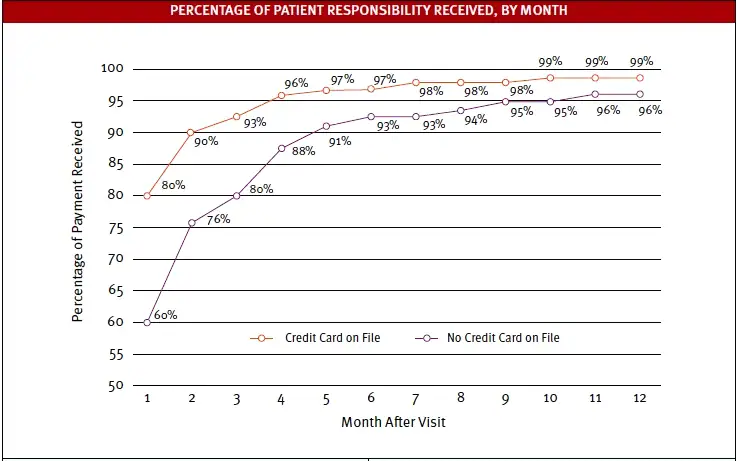Published on
Download the article PDF: Credit Card On File Speeds Collections Decreases Bad Debt
The credit-card-on-file practice requires a patient’s credit card at the time of service, which is used to cover balances after an insurance claim adjudicates. In addition to increasing total collections, charging the card on file also enables an urgent care to capture payments more quickly than time-consuming and costly collection efforts, such as mailing statements.
In an Experity analysis of 392,699 comparable Blue Cross Blue Shield urgent care visits in 2024, 80% of patient responsibility on CPT 99204 (new patient office or other outpatient visit, 45-59
minutes) was paid in the first month when a credit card was on file versus only 60% being paid in the first month when no credit card was on file. Patient balances included here are those remaining after the date of service, excluding co-pays.
Without a credit card on file, it takes 5 months to collect at least 90% of the balance vs only 2 months with a credit card on file.
Moreover, after 12 months, bad debt write-offs with a credit card on file are only 1% versus 4% without a credit card.


